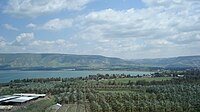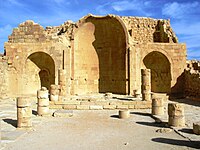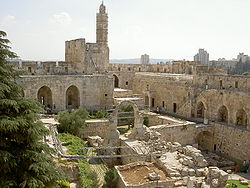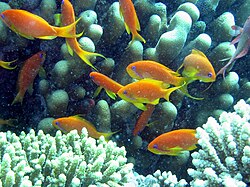| Revision as of 02:42, 3 July 2011 editJohn Cline (talk | contribs)Autopatrolled, Extended confirmed users, Page movers, New page reviewers, Pending changes reviewers, Rollbackers, Template editors64,922 editsm Reverted edits by WalkerHerbertBush (talk) to last revision by 79.183.232.74 (HG)← Previous edit | Revision as of 03:22, 3 July 2011 edit undoWalkerHerbertBush (talk | contribs)30 edits Undid revision 437492378 by My76Strat (talk)Next edit → | ||
| Line 16: | Line 16: | ||
| }} | }} | ||
| '''Tourism in Israel''' is one of the country's major sources of income, with 3.45 million ] arrivals in 2010.<ref>"." '']''. December 28, 2010. Retrieved on December 28, 2010.</ref> Israel offers a plethora of historical and religious sites, beach resorts, ], ] and ]. Israel has the highest number of museums per capita in the world.<ref></ref> The most popular paid ] is ].<ref name="2008Ynet">{{cite web | url=http://www.ynetnews.com/articles/0,7340,L-3698864,00.html| title= | '''Tourism in Israel''' is one of the country's major sources of income, with 3.45 million Jewish and Christian ] arrivals in 2010.<ref>"." '']''. December 28, 2010. Retrieved on December 28, 2010.</ref> Israel offers a plethora of historical and religious sites, beach resorts, ], ] and ]. Israel has the highest number of museums per capita in the world.<ref></ref> The most popular paid ] is ].<ref name="2008Ynet">{{cite web | url=http://www.ynetnews.com/articles/0,7340,L-3698864,00.html| title= | ||
| Masada tourists' favorite spot in Israel | publisher=] | accessdate=2009-04-08}}</ref> Most tourists visit from the ], ], ], ], and the ].<ref></ref> | Masada tourists' favorite spot in Israel | publisher=] | accessdate=2009-04-08}}</ref> Most tourists visit from the ], ], ], ], and the ].<ref></ref> | ||
Revision as of 03:22, 3 July 2011
| The neutrality of this article is disputed. Relevant discussion may be found on the talk page. Please do not remove this message until conditions to do so are met. (July 2010) (Learn how and when to remove this message) |
| This article's factual accuracy is disputed. Relevant discussion may be found on the talk page. Please help to ensure that disputed statements are reliably sourced. (July 2010) (Learn how and when to remove this message) |
 The Western Wall and Dome of the Rock in Old City of Jerusalem
The Western Wall and Dome of the Rock in Old City of Jerusalem An aerial view of the Sea of GalileeFile:TelAviv aerial(194).jpgTel Aviv
An aerial view of the Sea of GalileeFile:TelAviv aerial(194).jpgTel Aviv
Tourism in Israel is one of the country's major sources of income, with 3.45 million Jewish and Christian tourist arrivals in 2010. Israel offers a plethora of historical and religious sites, beach resorts, archaeological tourism, heritage tourism and ecotourism. Israel has the highest number of museums per capita in the world. The most popular paid tourist attraction is Masada. Most tourists visit from the United States, Russia, Germany, France, and the United Kingdom.
Most-visited cities in Israel
 Modern Jerusalem
Modern Jerusalem Arab market. Old City of Jerusalem
Arab market. Old City of Jerusalem Ruins of Scythopolis, Beit Shean
Ruins of Scythopolis, Beit Shean Eilat seaside resort on the Red Sea
Eilat seaside resort on the Red Sea Hula Valley in northern Israel
Hula Valley in northern Israel Masada
Masada Ancient Synagogue at Bar'am National Park
Ancient Synagogue at Bar'am National Park Natural warm pool at Gan HaShlosha National Park
Natural warm pool at Gan HaShlosha National Park Shivta National Park, (World Heritage Site)
Shivta National Park, (World Heritage Site)
- With 2,215,000 tourist arrivals in 2009, one of the oldest cities in the world, the capital, and largest city of Israel is also the most-visited city in Israel; as a holy city to the three major Abrahamic religions-Judaism, Christianity and Islam, it has a myriad of historical, archeological, religious and sundry other attractions.
- Many of them are in the Old City of Jerusalem, traditionally divided into four quarters: Armenian Quarter, Christian Quarter, Muslim Quarter snd Jewish Quarter. Most importantly, the Temple Mount (known in Arabic as Haram ash-sharīf, the Noble Sanctuary), site of the ancient Temple in Jerusalem with only the Western Wall at its foot remaining, and now with the Dome of the Rock and Al-Aqsa Mosque.
- Other places in East Jerusalem are the Mount of Olives: with its lookout point, Tomb of Absalom, a 2000 year old Jewish cemetery, and churches, Gethsemane, church of all nations, Dominus Flevit, and the Church of Maria Magdalene (Russian orthodox church). Various locations have been proposed as the Tomb of Jesus, traditionally identified as where the Church of the Holy Sepulchre stands. Nor has Golgotha, the nearby hill where he was crucified been located. Immediately south of the Jewish Quarter lies the City of David with archeological digs including Hezekiah's Tunnel.
- West Jerusalem is the newer part of Jerusalem, built mainly after the creation of Israel in 1948. Some spots:
- The German Colony, a Temple Society settlement, with a colourful mix of architectural styles.
- Mea Shearim, established in the nineteenth century and inhabited largely by ultra-Orthodox Haredi Jews, retains the flavor of an East European shtetl.
- Yad Vashem Holocaust memorial museum.
- Ein Karem, the traditional birthplace of John the Baptist, is one of the four most visited Christian pilgrimage sites in Israel.
- Mt. Zion, the traditional resting place of King David.
- Mt. Scopus, site of the Hebrew University and standing at 2710 feet above sea level, offers a panoramic view of the city. Both the Temple Mount and the Dead Sea are visible from this location.
- With 1,676,000 tourist arrivals in 2009, it is Israel's second-largest city, and a cosmopolitan, cultural and financial global city. The city's greater area is the largest with 3 million inhabitants. Tel Aviv exhibits a Unesco world heritage area of Bauhaus architecture. Nearby historical city of Jaffa is experiencing a touristic boom. In 2010, National Geographic ranked Tel Aviv as one of the world's ten best beach cities.
- Tel Aviv is called the locals as the "city that never sleeps" because of the bug nightlife scene, especially for LGBT. Tel Aviv named by Out Magazine "the gay capital of the Middle East", and today Tel aviv is a popular destination for a gay tourists.
- A holy city in Judaism where much of the Jerusalem Talmud was written and kabbalah (Jewish mysticism) was developed. Famous for its artisans. The grave of Rabbi Shimon bar Yochai in nearby Meron.
- (Bahá'í) Shrine of Bahá'u'lláh, resting place of Bahá'u'lláh as well as a Unesco world heritage historical town.
- Carmel
- (Bahá'í) Shrine of the Báb, its associated terraces, and the Bahá'í World Centre and the buildings (a Unesco world heritage).
- A holy city in Judaism, on west bank of the freshwater Sea of Galilee.
- Saint Peter's house at Capernaum, Tabgha and the Mount of Beatitudes.
- Jesus's hometown and the site of many of his reported acts and miracles.
- Many churches, including The Church of the Annunciation, the largest Christian church building in the Middle East. In Roman Catholic tradition, it marks the site where the Archangel Gabriel announced the future birth of Jesus to the Virgin Mary (Luke 1:26-31).
- Starting point for the Jesus Trail, a network of hiking routes connecting many sites from Jesus's life and ministry.
- A Roman Decapolis city. One of the largest archaeological sites in the Middle East.
- Its settlement attributed to the patriarch Abraham. Regional capital of the Negev desert. It serves as a starting point for exploring such sites as the Ramon Crater or the Unesco world heritage Nabathean Incense Route (Shivta, Avdat, Mamshit).
- The southernmost city in Israel, on the Red Sea coast, it is a hot, sunny year-round travel destination. Popular destination for skin and scuba diving, with equipment for hire on or near all major beaches.
- The old city includes Roman and Crusader ruins, such as the amphitheatre (where concerts are frequently held), as well as the harbor from which St. Paul was taken as a prisoner to Rome.
- The grassy golf club and villas are newly developed in this coastal city, which has become increasing popular to tourists.
Archaeological tells
The country abounds in archaeological tells. Tel Be'er Sheva, Tel Hazor and Tel Megiddo (the site of Armageddon) were recognized as Unesco world heritage sites. They exhibit elaborate water systems that are among the earliest in the world.
National parks and nature reserves
Main article: National parks and nature reserves of IsraelIsrael has 67 national parks and 190 nature reserves. Some of them are located at archaeological sites. Beit Guvrin-Maresha is a large archaeological complex in the Judean Mountains. Tzippori is an ancient Roman town with elaborate mosaics and a historic synagogue. Ein Gedi, a desert spring, is a starting point for tours to Masada and the Dead Sea.
Hiking trails
- Israel National Trail - a hiking path that crosses the entire country of Israel. Its northern end is at Dan, near the Lebanese border in the far north of the country, and it extends to Eilat at the southernmost tip of Israel on the Red Sea, a length of approximately 940 km (580 mi). The trail takes about 30–70 days to finish if hiked continuously.
- Jerusalem Trail - 40 km trail, connects the Israel National Trail with Jerusalem and the area of the Old City.
- Jesus Trail - a 65 km hiking and pilgrimage route in the Galilee region of Israel that traces routes Jesus may have walked, connecting many sites from his life and ministry. The trail begins in Nazareth, and passes through Sepphoris, Cana (Kafr Kanna), the Horns of Hattin, Mount Arbel Cliffs, the Sea of Galilee, Capernaum, Tabgha, the Mount of Beatitudes, Tiberias, the Jordan River, Mount Tabor, and Mount Precipice.
- Golan Trail - a 125 km route from the slopes of Mt. Hermon to the southern Golan Heights. It passes many towns and settlements including Majdal Shams, Nimrod, Masade, Buq'ata, Odem, Merom Golan, and Ein Zivan.
- Valley of Springs Trail - a 120 km route in and around the Jordan Valley, terminating in Beit She'an and on Mount Gilboa near Kibbutz Meirav. The trail connects numerous springs (for which the area is famous) and other historical and natural attractions.
Kibbutzim
A network of kibbutzim dot the countryside, some offering guesthouses and country lodging. They are undergoing a process of modernization and re-organization. Well known in Israel for great contributions to Israeli history, politics, army, and Zionism.
Museums
Main article: List of museums in Israel
With over 200 museums, Israel has the highest number of museums per capita in the world, with millions of visitors annually.
- Israel Museum in Jerusalem, Israel's national museum, attracts 800,000 visitors a year.
- Tower of David Museum of the History of Jerusalem
- Yad Vashem, Israel's Holocaust memorial
- Tel Aviv Museum of Art
- Diaspora Museum
- Haifa Museum of Science and Technology
Hot springs

- Hamat Gader
- Tiberias hot springs
West Bank tourism

West Bank tourism has been administered by Israel since the beginning of its occupation in 1967. Territory that had been off-limits to Israeli citizens were now made available for tourism, and Israel established numerous amenities in these territories and East Jerusalem to make it more appealing to Israeli and foreign tourists. Despite that, Israeli citizens are generally restricted from traveling to parts of the West Bank under Palestinian authority control. Today, The Palestinian Authority and Israeli tourism ministries work together on tourism in the Palestinian territories in a Joint Committee on Tourism.
- Bethlehem - Burial place of the matriarch Rachel and birthplace of King David and of Jesus. Around 1.3 million tourists visited the city in 2008. Popular sites in the city and around include: Church of the Nativity, A church built over the cave that tradition marks as the birthplace of Jesus of Nazareth, The Manger Square, Shepherd's Field in Beit Sahour, Solomon's Pools and the Salesian Cremisan Monastery.
- Herodium - A fortress built by Herod the Great. It is administered by the Israel Nature and Parks Authority.
- Hebron - The second-holiest city in Judaism and the place where the Tomb of the Patriarchs and Matriarchs is located, according to Jewish and Islamic tradition. It was also the capital of the Kingdom of Judah before David moved it to Jerusalem.
- Jericho - Tourism increased by nearly 42.3% in the first three quarters of 2008 as crossing between areas under PA control and Israel became less restricted.
Golan Heights tourism

The Golan Heights were captured by Israel from Syrian in the 1967 Six-Day War and are recognized by the international community as Syrian territory held by Israel under military occupation. In an act ruled null and void by the United Nations Security Council, Israel applied civilian law to the territory in 1981.
For ease of touring, the Golan can be divided into the north with most of its popular destinations and the south where the administrative capital is located. Travel guides recommend renting a car or joining an organized tour. Although it is slower, some travelers chose to hitchhike throughout the region. Accommodations are typically through bed and breakfasts or cabins called zimmers.
The first Israeli ski resort was established in the Golan. Nature trails and other attractions were established by Israel in order to further entrench its presence in the territory and to attract tourists. As much of the Golan's land is not arable, many of the Israeli settlements established focused on tourism as a way generating income.
- The Golan has national parks which provide extensive hiking options. Most of these are maintained by the Israel Nature and Parks Authority. Land mines from previous wars pose a risk when clearly marked and fenced off areas are disregarded.
- The Mount Hermon ski resort is popular during the winter months. This is the first ski resort in the Israeli annexed Golan.
- The area produces wine and the Golan Heights Winery is a large producer. The winery has a visitor's center and tours.
- Archaeology in Katzrin, Gamla, Nimrod Fortress, Rujm el-Hiri
Seas and lakes

- Mediterranean coastal strip
- Sunny beaches and hotel resorts
- The lowest point on the Earth's surface and the deepest hypersaline lake in the world, famous for its buoyancy and medicinal qualities
- Sunny beaches and hotel resorts, popular destination for SCUBA diving and water sports
- Sunny beaches and hotel resorts
- Important Christian holy sites such as Mount of Beatitudes
Dive tourism
See also: Israeli Diving FederationEilat is located in the Gulf of Aquaba, one of the most popular diving destinations in the world. The coral reefs along Eilat's coast remain relatively pristine and the area is recognized as one of the prime diving locations in the world. About 250,000 dives are performed annually in Eilat's 11 km coastline, and diving represents 10% of the tourism income of this area. In addition, given the proximity of many of these reefs to the shore, non-divers can encounter the Red Sea's reefs with relative ease. Water conditions for SCUBA divers are good all year round, with water temperatures around 21-25 C°, with little or no currents and clear waters with an average of 20–30 meters visibility.
Medical tourism

Israel is emerging as a popular destination for medical tourists. In 2006, 15,000 foreigners travelled to the country for medical procedures, bringing in $40 million of revenue. The advantages of Israel for health tourism include good natural resources; stable, comfortable climate all year round; a progressive medical systems, and scenic locations which have a calming effect on patients. Medical tourists choose Israel for several reasons. Some come from European nations such as Romania where certain procedures are not available. Others come to Israel, most commonly from the United States, because they can receive quality health care at a fraction of the cost it would be at home, for both surgeries and in-vitro fertilization treatments. Other medical tourists come to Israel to visit the Dead Sea, a world-famous therapeutic resort. The Israel Ministry of Tourism and several professional medical services providers have set out to generate awareness of Israel's medical capabilities.
Tourist demographics and economic contribution

According to the Israeli Ministry of Tourism, in 2009 54% of the 2.7 million visitors to Israel were Christian. Jewish tourists accounted for 39%. Revenue from tourism in 2009 totalled $ 3.3 billion. In 2010, tourism constituted 6.4% of the country's GDP. The World Travel and Tourism Council estimates that real GDP growth for tourism in Israel is expected to average 5.0% per annum over the years 2010-2020. The contribution of tourism to Gross Domestic Product is expected by WTTC to rise from 6.4% (US$12.0 billion) in 2010 to 7.2% ($22.1 billion) by 2020. The contribution of the industry to employment is 223,000 jobs in 2010, 7.9% of total employment. Export earnings from international visitors and tourism goods are expected to generate 6.5% of total exports (US $4.8 billion) in 2010. Investment in tourism is estimated at US $2.3 billion or 7.6% of total investment in 2010. The Israel Travel & Tourism economy is ranked number 51 in absolute size worldwide, of the 181 countries estimated by the WTTC.
International recognition and awards

In 2005, Ernst & Young conducted a comprehensive research study on Israeli tourism. The report, entitled "A New Market Strategy for Israeli Tourism" was published in November 2006. The researchers felt that increasing the number of international tourists by 2011 from 1.9 million to 4–5 million was a feasible goal. The report stated that Israel's most attractive feature for international markets was its religious culture and history and the great diversity it offers within a very small country. According to the researchers, Israel's different cultures and religions, its diverse landscapes, the contrasts between cities (Jerusalem, Tel Aviv), and combination of European and Middle Eastern culture produced a "very high density of experience." The report recommended that Israel adopt appropriate marketing strategies to counter any perceived negative imagery associated with political developments.
In 2010, Israel won the title of "most outstanding stand" in all categories at the world's largest tourism fair, ITB, held in Berlin. The Israeli stand won the title of "best presenter" in the Near East and Middle East for the third time in a row.
Most visited sites


In 2009, the two most visited sites in Israel were the Western Wall and the grave of Rabbi Shimon bar Yochai.
References
- "Israel experiencing tourist boom ." Herald Sun. December 28, 2010. Retrieved on December 28, 2010.
- Interesting Facts about Israel
- "Masada tourists' favorite spot in Israel". Ynetnews. Retrieved 2009-04-08.
- Tourism statistics
- ^ Bremner, Caroline (10 January 2011). "Euromonitor International's Top City Destination Ranking". Euromonitor International. Retrieved 10 January 2011.
- Ein Karem under threat
- National Geographic ranks Tel Aviv among World's Top Ten Beach Cities.
- "Science & Technology". Consulate General of Israel in Los Angeles. Archived from the original on 2007-04-16. Retrieved 2007-05-26.
- Hazan, Susan. "The Israel Museum and the Electronic Surrogate". Cultivate Interactive. Retrieved 2009-05-06.
- ^ Kaufman, David; Katz, Marisa S. (April 16, 2006). "In the West Bank, Politics and Tourism Remain Bound Together Inextricably". The New York Times. Retrieved July 4, 2010.
- ^ Stein 2008, p. 647
- http://travel.state.gov/travel/cis_pa_tw/cis/cis_1064.html
- Enz, Cathy A. (2009). Hospitality Strategic Management: Concepts and Cases (2 ed.). John Wiley and Sons. p. 273. ISBN 047008359X.
- Mitnick, Joshua (26 December 2008). "Calm brings record tourism to Bethlehem". Christian Science Monitor. Retrieved 2 July 2010.
- ^ Thomas, Amelia; Kohn, Michael; Raphael, Miriam; Raz, Dan Savery (2010). Israel and the Palestinian Territories. Lonely Planet. ISBN 978-1741044560.
{{cite book}}: CS1 maint: multiple names: authors list (link) - Bethlehem visitor numbers soar in 2008 says Israel, ENI News
- Korman, Sharon. The right of conquest: the acquisition of territory by force in international law and practice, Oxford University Press, 1996. pg. 265. ISBN 0198280076. "The continued occupation of the Syrian Golan Heights is recognised by many states as valid and consistent with the provisions of the UN Charter, on a self-defence basis. ...But the notion that Israel is entitled to claim any status other than that of belligerent occupant in the territory which it occupies, or to act beyond the strict bounds laid down by the Fourth Geneva Convention, has been universally rejected by the international community."
- UN Security Council Resolution 497
- Jacobs Daniel; Eber, Shirley; Silvani, Francesca (1998). Israel and the Palestinian territories: The Rough Guide. Rough Guide. ISBN 978-1858282480.
{{cite book}}: CS1 maint: multiple names: authors list (link) - ^ Kohn, Michael (2007). Israel and the Palestinian Territories. Lonely Planet. ISBN 978-1864502770.
- ^ Hazbun 2008, p. 94
- Efrat 1988, p. 84
- ^ Fodor's Israel. Random House, Inc. 2009. ISBN 978-1400008988.
- ^ MFA, Gulf of Aqaba- Tourism, 30 Sep 1997
- Artificial Reefs and Dive Tourism in Eilat, Israel Dan Wilhelmsson, Marcus C. Öhman , Henrik Ståhl and Yechiam Shlesinger Ambio, Vol. 27, No. 8, Building Capacity for Coastal Management (Dec., 1998), pp. 764-766 Published by: Allen Press on behalf of Royal Swedish Academy of Sciences
- ^ Welcoming the world's ills, Haaretz, Feb 8, 2008
- Health tourism in Israel: A developing industry Niv, Amiad (Adi) Tourism Review. Vol. 44, no. 4, pp. 30-32. 1989
- Medical Tourism Israel
- Christian pilgrims boost Israeli tourism Christian pilgrims boost Israeli tourism
- ^ World Travel and Tourism Council, KEY FACTS AT A GLANCE, Israel
- International Markets and Growth Potential
- Israel wins 1st place in Berlin tourism fair
- "For first time, religious sites to get state budget of NIS 6.3M". HaAretz. Retrieved 2009-03-08.
Jerusalem is the capital under Israeli law. The presidential residence, government offices, supreme court and parliament (Knesset) are located there. The Palestinian Authority foresees East Jerusalem as the capital of its future state. The United Nations and most countries do not recognize Jerusalem as Israel's capital, taking the position that the final status of Jerusalem is pending future negotiations between Israel and the Palestinian Authority. Most countries maintain their embassies in Tel Aviv and its suburbs or suburbs of Jerusalem, such as Mevaseret Zion (see CIA Factbook and Template:PDFlink) See Positions on Jerusalem for more information.
Bibliography
- Stein, Rebecca L (2008). "SOUVENIRS OF CONQUEST: ISRAELI OCCUPATIONS AS TOURIST EVENTS". International Journal of Middle East Studies. 40 (04). Cambridge University Press: 647–669. doi:10.1017/S0020743808081531.
{{cite journal}}: Invalid|ref=harv(help) - Hazbun, Waleed (2008). Beaches, ruins, resorts: the politics of tourism in the Arab world. U of Minnesota Press. ISBN 9780816654925.
{{cite book}}: Invalid|ref=harv(help) - Timothy, Dallen J (2001). Tourism and political boundaries. Routledge. ISBN 9780415196963.
{{cite book}}: Invalid|ref=harv(help) - Efrat, Elisha (1988). Geography and Politics in Israel Since 1967 (1 ed.). Routledge. ISBN 978-0714633039.
{{cite book}}: Invalid|ref=harv(help)
External links
- Ministry of Tourism Template:En icon
- Discover Jerusalem
- Go Israel(Ministry of Tourism)
- Template:Wikitravel